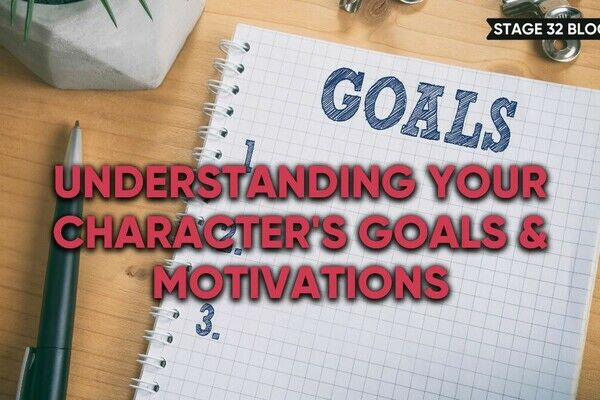Owned.
 Richard "RB" Botto
Richard "RB" Botto For today's blog we bring back my friend and sometimes sensei, Doug Richardson. Doug's first blog for Stage 32 was the outstanding five part series, Writer Held Hostage, which remains one of the most read blogs in our history.
Doug has a long history as a screenwriter in Hollywood. In 1989, he garnered national attention when his spec screenplay was the first to be optioned for one million dollars. Soon after, he was offered the assignment of writing DIE HARD 2, the sequel to the Bruce Willis blockbuster. Since then Doug has written and produced many feature films, including the box office smash BAD BOYS and most recently, HOSTAGE.
But Doug is also a novelist. His debut novel, DARK HORSE was published by Avon/Morrow in hardcover, and was followed two years later by the follow up, TRUE BELIEVERS. His latest novel THE SAFETY EXPERT is available at Amazon and Barnes and Noble. I can't recommend THE SAFETY EXPERT enough. It's a thriller, a page turner, and as satisfying a read as you'll have this year.
Further still, Doug is a blogger. And each week over at his site, he shares a William Goldmanesque story from his life in the Hollywood trenches. Doug is a raconteur of the highest order, and if you're a screenwriter, or just someone who desires to work in the biz, the blog should be on your short list of destination reading.
For the sake of full disclosure, this entry is a bit of a cheat. It's a repeat, having already appeared on Doug's site. But it's one of my favorites. And one worth sharing.
Enjoy.
RB
It's out there. From my screenplays and novels to my hundred and forty character Twitter sorties to this very blog. Whatever I say. Whatever I write, it's mine. My name is on it. I own the content whether I regret having written it or not. I've tried to teach this to my children. Own your words. Own your actions.
Easier said than done because I didn't always feel that way.
Let me rewind a few years. I was about two weeks away from the premiere of my movie Money Train. My expectations weren't exactly high for the picture. I'd already suffered through a credit arbitration, I'd read a variety of the rewrites of my original screenplay, including the final shooting draft. The resulting picture would come bearing no great surprises.
I'd turned down a number of invites to screen the movie. My previous film for the very same studio, the surprise hit Bad Boys, had earned some serious box office coin. So when it came to this writer, Columbia was being extra courteous. Still, call it avoidance or instinct, I'd found plenty of excuses to miss the earliest unspoolings of Money Train. With but a few weeks left before it landed on America's movie screens, it was time for me to cowboy up and see the damned movie.
I phoned Zachary Feuer to see if he wanted to join me. He's the producer who was responsible for the film's inception. It was in my office at Disney where he'd first told me about the actual armored train that secretly trolled the railways of the New York subway system. I was instantly on board and, in a matter of moments, had concocted a tale of two best friends caught up in a modern day homage to The Great Train Robbery. Zach had been beside me from the inception and involved in both the sale and development of the original screenplay. But because Zach was a paid development employee for TV producer Fred Pierce, he was relegated to an insulting Associate Producer position in the credit roll. Zach deserved better. But I digress.
The screening we chose was a morning event at a Westwood theater. The audience was primarily comprised of reps from the various exhibition chains around the country. The lights extinguished. The Columbia Pictures logo filled the screen. The rest is a blur. When the credits rolled, I felt like vomiting.
Zach and I retired to the sushi joint next door where we both tried to drown our disappointment in warm sake. How the hell could I have let my expectations elevate? Especially after having been so acutely familiar with the final script? Clearly, we'd both been victims of our own optimism. A pair of hopeful fools. Maybe it's because the director, Joe Ruben, had shown an accomplished hand in his previous films. Or because the whispers around Hollywood were that Columbia had another hit on their hands with the genius re-teaming of Woody Harrelson and Wesley Snipes in their first foray since White Men Can't Jump.
What I'd watched was ham-fisted, over-the-top, and dull in the center. Frankly put, I felt embarrassed my name was on it.
While we wallowed in our post-screening misery, we could overhear the exhibitor reps at a nearby table lament about how they'd rather dedicate more of their precious screens to the upcoming James Bond picture.
Note: Money Train is not a bad movie. It has its fans and for that I'm appreciative. It continues to play on cable and I gladly cash the residual checks I receive every quarter. My reaction to the film then and now is purely visceral. I could best describe it as watching my lobotomized child stumbling around a house which I designed, but never furnished--only to witness it continually bruise itself as it bumped into tables and tripped over every exposed electrical cord.
Back to the story. And here comes the sticky part.
My wife, aka, the War Department, was seven months preggers with our first child. We were days away from the baby shower. We had family flying in for the happy day which, coincidentally, was scheduled the day before the Money Train premiere. The studio had promised a lavish event and party. As a writer in good stead with the studio, I'd been offered beaucoup invites. And what better way to entertain (and impress) your out-of-town guests but with a big Hollywood premiere? A red carpet flanked by paparazzi. Stars aplenty. All the glitz and glamour movie money could buy.
And all I wanted was out. I didn't want to attend. Nor did I want to approve it or promote it. Sure. I might just be the writer. But I had my pride.
"I don't want to go," I told my wife. "I can't support it."
"But my family is flying in," she reminded.
"Flying in for the shower," I argued. "Not the premiere."
"I invited them. They're looking forward to it. You can't cancel."
"I can and I will. They cut the soul from my movie and it makes me sick. I don't have to support it."
"Just think about what you're doing," she advised. "It's not just my family. There's the studio. Your agents. What kind of message are you sending?"
"We have to cancel now," I insisted.
Oh, the War Department. So wise in her actions and her words. This time, she chose to throw up her hands in mock-resignation.
I'd never been in such an emotional pickle. I'd been pleased enough with Die Hard 2. Ecstatic over how Bad Boys had turned out. This was my first encounter with utter disappointment in the final product.
I needed advice.
My wife suggested I use one of my life lines. In this case, producer, friend, and television legend, Leonard Goldberg. The old sage had produced both film and TV and run more than one movie studio. More importantly, he'd often imparted his special brand of wisdom at a few career points where I'd needed a guiding hand.
I described my quandary to Leonard.
"Let me ask you something," said Leonard. "Had you'd seen and even liked the picture, would you feel any different about your circumstance?"
"Of course I would," I said.
"So you're only proud of your work in success?"
"Not exactly."
"Is your name on the movie?"
"Yes."
"Did they spell it correctly?"
"Of course they did."
"Then you gotta own it," said the sage. "Not just that, you need to support the movie in both success and failure."
"Even if I hate it?"
"Especially if you hate it. The movie might yet be a hit and, if it is, you'll reap all kinds of benefits from it. Correct?"
"Correct," I repeated.
"If you're prepared to accept a success you must be equally prepared to accept a failure."
Oh, the hard hammer of truth. It hurts like hell when it first makes contact with your skull, but clears the fog like no other remedy.
"So I'm going to the premiere," I said aloud, confirming to myself.
"You're going and supporting your film because it has your name on it."
"Yeah, yeah. You're right," I said, wondering why such simple and perfect logic had escaped me. I'd clearly been blinded by my egotistical emotions. And there ended the lesson.
Then came last week.
Super-hyphenate Jeanne Veilette Bowerman along with her good folks at Scriptmag.com, have been posting some of my earlier pieces on their site. Following a post I'd written called Live Free or Die of Pneumonia was an unusually spicy trail of commentary, mostly by a fellow who employed a rather silly screen name. His extremely articulate comments notwithstanding, I was bothered by the choice to conceal his or her identity behind the skirt of a pseudonym. He argued that whether he used his real name or not, his words should carry the same weight. Well, unless you're a Watergate source or a government-slash-corporate whistleblower, I strongly disagree.
I'm very grateful to Leonard Goldberg. And like most great teachings, his is one I continue to learn, relearn, and try to live by on a daily basis. Own your actions. Own your work. Own your words.
Read my new thriller, THE SAFETY EXPERT. Available in trade paperback and ebook at Amazon.com and Barnes and Noble.
As always, Doug will be available for remarks and questions in the comments section below. Ask the tough questions... Doug is the man with the answers.
To purchase Doug's book, The Safety Expert, click here.
A quick reminder - Only a few days remain to receive $10 off the early bird entry price for the Emerging Screenwriters Screenplay Contest. Click here for more details and to enter.
| Q&A with acting legend Terence Stamp |
| Six Degrees of Stage 32, AKA - It's a Small World After All |
Search Stage 32 Blog
There are now 3693 blog posts for you to enjoy. Search them all by tags below.
Acting, Advice, Cinematography, Coffee & Content, Composing, Contests, Distribution, Featured, Filmmaking, Financing, Inspirational, Networking, Producing, Screenwriting, Success Stories, Tips, Trending,Relevant Tags
Recommended Articles

Understanding Your Character's Goals & Motivations

6 Things To Know About Script Legal Research

5 Tips For Writing Your Life Story

Why Write About Your Experiences Through Fantastical Lenses?

Celebrate the December 2024 Stage 32 Community’s Successes

The 3 Step Process To Unlock Your Creativity

Happy Holidays from the Stage 32 Team!

New Feature: Stage 32 Writers Are Now Spotlighted With Unique Badges!

How Did You Get That Gig?



